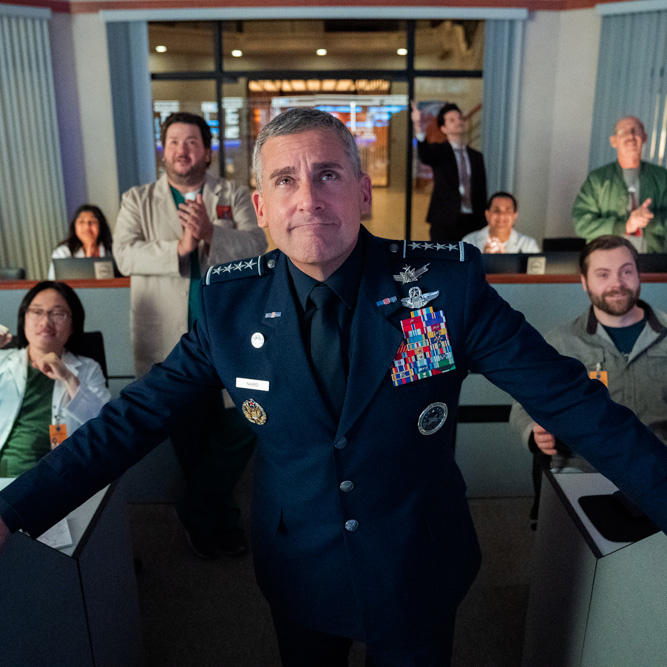In June 2018 Donald Trump made an announcement at the White House: “When it comes to defending America, it is not enough to merely have an American presence in space. We must have American dominance in space. So important. Very importantly I am hereby directing the Department of Defense and Pentagon to immediately begin the process necessary to establish a Space Force as the sixth branch of the armed forces.”
As with several of Trump’s verbatim statements, it could easily have been a joke if he wasn’t a) deadly serious and b) the president of the United States. But to one Netflix executive, Blair Fetter, it was a potential joke so tempting that he immediately got on the phone to Steve Carell.

